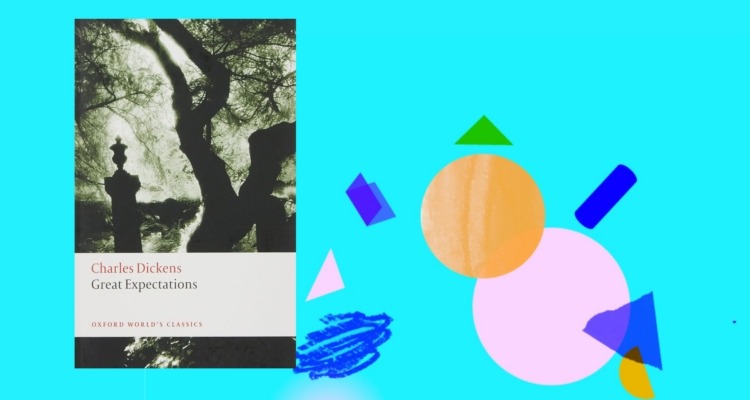Featured Poem: The Lesser Celandine by William Wordsworth
Last week, we broached the topic of ageing; a rather sensitive topic but one that is particularly ripe for the pondering of many a poet. In the selected poem, Yeats took something of a bittersweet stance – not that unusual combining said poet and said issue – half-lamenting his own losses but also clearly celebrating the aged presence of another, focusing on an outer appearance that has definitely altered but with no detriment to inner worth and beauty or the perceptions of others. This week’s poem, by another poetic great, also deals with age and the inevitable change it brings. Once again, it raises the question whether the change brought by the advancement of time really does change what is being aged all that much, other than in the physical sense – but whether the answer is quite as warming as that which Yeats provided requires a little more deconstruction.
William Wordsworth weaves together the outward landscapes of earthly nature with the inward substance of human nature in many of his poems to brilliant effect and such a connection is evident in this poem, between a humble little flower with bright yellow heart-shaped petals called the Lesser Celandine and the individual or indeed, humanity as a collective. Though typically associated with daffodils, Wordsworth had a much stronger association to the celandine; discovering it when he was considerably aged himself, it provided a special appreciation and inspiration within him as he composed not a singular, not two but three separate odes based upon the flower. While To the Small Celandine and To the Same Flower are fairly straightforward declarations of love and praise to what Wordsworth views as a ‘prophet of delight and mirth’, The Lesser Celandine takes a more contemplative view. In its age the flower has taken on ‘an altered form’ which is noticeable to Wordsworth, not just in its appearance and colour – no more sunny and bold but white and faded – but more crucially, in its demeanour. A characteristic of the celandine, detailed by Wordsworth, is that it clams itself up when the elements are at their worst, only presenting its face to the sun when it shines unthreatened by cold or rain. Considerably symbolic of us human beings, whose brittle egos and sensitive souls are frequently liable to hide away from the harsh realities of the world – a process of self-consciousness and self-preservation. So it is heartening to find that in its later stages, the celandine stands proud regardless, bearing the bad weather with indifference…surely? This is what I initially thought, the notion that age brings with it an assurance and steely confidence that can be lacking in youth and that’s surely something to be proud of. But Wordsworth sees no profound change, no growth of courage and casting off of caution; the alteration remains merely as a necessity of age. Its acceptance is not particularly affirming, especially when we are told that ‘the sunshine may not cheer it, nor the dew; it cannot help itself in its decay’. Sigh.
But hold on – there is some redemption. Like with poetry, the ageing process is something that you can interpret as you wish, on any given day. The change is not inherently bad or renders the world static. It should be noted that on viewing the flower Wordsworth ‘smiled that it was grey’; perhaps because of its distinction amongst all the younger flowers, its testament to survival, the strengthened association with the little aged flower as he is himself an older man (seeing as he aligns himself with the older generation, saying ‘behold our lot’). Once more, the connections but also the differences between nature and mankind, the young and the old, are shored up in the closing line ‘Age might but take the things that Youth needed not’. Again this could be interpreted in a positive or negative way but I choose to see it as a good thing; that age removes the barriers and baggage we needlessly carry in the days when we are trying to feel our way through life. It’s also reminiscent of lines from another Wordsworth poem, Animal Tranquillity and Decay; “He is by nature led/To peace so perfect, that the young behold/With envy what the Old Man hardly feels.”
The Lesser Celandine
There is a Flower, the Lesser Celandine,
That shrinks, like many more, from cold and rain;
And, the first moment that the sun may shine,
Bright as the sun himself, 'tis out again!
When hailstones have been falling, swarm on swarm,
Or blasts the green field and the trees distressed,
Oft have I seen it muffled up from harm,
In close self-shelter, like a Thing at rest.
But lately, one rough day, this Flower I passed,
And recognized it, though an altered form,
Now standing forth an offering to the blast,
And buffeted at will by rain and storm.
I stopped, and said, with inly-muttered voice,
"It doth not love the shower, nor seek the cold:
This neither is its courage nor its choice,
But its necessity in being old.
"The sunshine may not cheer it, nor the dew;
It cannot help itself in its decay;
Stiff in its members, withered, changed of hue."
And, in my spleen, I smiled that it was grey.
To be a Prodigal's Favourite -then, worse truth,
A Miser's Pensioner -behold our lot!
O Man, that from thy fair and shining youth
Age might but take the things Youth needed not!
William Wordsworth (1770-1850)
Share
Related Articles

World Book Day® and The Reader celebrate the fun of reading
National reading charity World Book Day is partnering with Shared Reading charity The Reader for a fun-filled day in…

February’s Title Pick for Children: Trash by Andy Mulligan
Through our Bookshelf this year we are exploring the different places that people call home. From the very beginning…

February’s Title Pick for Adults: Great Expectations by Charles Dickens
Great Expectations by Charles Dickens The Reader’s staff and volunteers have been leading Shared Reading groups in many different…


